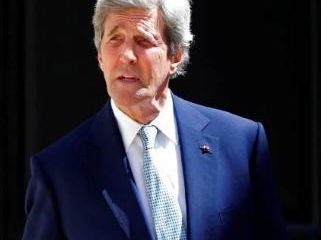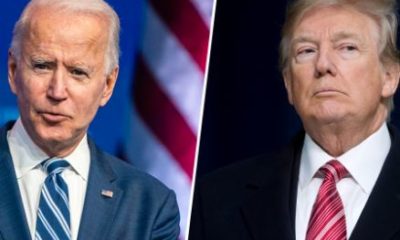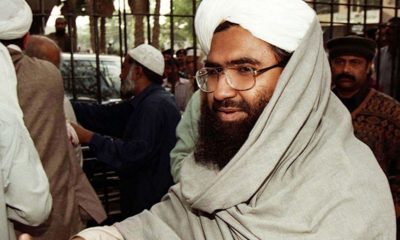World
India calls for transparency and choice in electing UN Secretary-General

By Arul Louis
United Nations: India has called for drastic reforms in the election of the secretary-general to introduce transparency and choice in the process of picking a successor to Ban Ki-moon next year and said it should not be a prerogative of the five permanent members of the Security Council.
India’s delegate Bhartruhari Mahtab told the Security Council on Tuesday that the secret straw polls in the Council should be done away with and discussions should be held in open sessions with the secretary-general providing a summary of the proceedings. Moreover, the Security Council should recommend a slate of two or more candidates on whom the General Assembly can vote, he said.
The UN Charter only says that the secretary-general should be appointed by the General Assembly on the recommendation of the Security Council and a 1946 General Assembly resolution added a provision that only one candidate should be recommended and a debate should be avoided.
This has morphed into an arcane process in which the Security Council members vote on candidate with colour-coded ballots — one colour for permanent members and another for the others. A ballot in the colour of the permanent members automatically results in a veto of a candidate while it won’t be known who cast the veto.
The candidate who gets a majority with the colour-coded ballots of all the five permanent members is recommended to the General Assembly and its vote to approve the candidate is a given.
To make the election transparent, “an important step would also be to do away with secret straw polls using different coloured slips that allow the P5 (five permanent members) to exercise the veto without even taking ownership of it”, Mahtab said.
“My delegation has pressed for the Council to recommend two or more names to the General Assembly,” he added. “While the pronouncements of the General Assembly do not specifically provide for this, there is — in our view — no legal impediment for the Council to do so.”
Mahtab appealed to the non-permanent members of the Security Council to push for changes in the way the secretary-general is elected.
Under the system of rotating the presidency of the Security Council, except for three months next year, the non-permanent will preside over the Security Council next year and it will be for them to decide on whether the selection of the secretary-general will remain the sole preserve of the P5 or not, he said.
Mahtab, a Biju Janata Dal member of the Lok Sabha representing Cuttack in Orissa, is one of the five members of parliament who are currently in India’s UN delegation.
General Assembly President Mogens Lykketoft had told reporters after his inauguration last month that the secretary-general candidates will be presented to the UN members in a timely fashion and they will interact with them. “This will something happening for the first time in the history of the United Nations and I see that as a major step forward,” he added.
However, he sounded tentative on Tuesday only saying that he would work with the Security Council President to begin the process of soliciting candidates and acknowledged that there was “widespread calls for increased transparency, inclusivity and a more rigorous process in selecting the next chief of this Organization”.
On the issue of transparency, Mahtab said, “The most non-transparent of the subsidiary bodies of the Security Council is the 1267 Al Qaeda Sanctions Committee.” Named for the number of the Security Council resolution setting it up, the committee imposes sanctions on terrorists and terrorism supporters.
“No information is shared on the criteria of listing or not listing individuals and organizations on whom sanctions are applied,” Mahtab said. “It is our apprehension that there may, in fact, be no criteria at all. And that any of the 15 members may be allowed to exercise a veto without assigning any reason and without the wider membership being informed of their having done so.”
Earlier this year, China vetoed India’s demand for taking action under Security Council’s anti-terrorism resolution 1267 against Pakistan for releasing Zaki-ur-Rehman Lakhvi, the Lashkar-e-Taiba mastermind of the 2008 Mumbai attack.
“In April this year, the new Chair of the 1267 Committee organised a briefing for the wider membership of the UN and said that he would do so periodically,” Mahtab said. “No meeting has, however, since been held. His predecessor had also kept the work of the Committee cloaked in secrecy.” The current chair of the committee is Gerard van Bohemen, the Permanent Representative of New Zealand.
World
Lockdowns in China Force Urban Communities to Defy Censorship and Vent Frustration Online

Shanghai’s rich middle class is leading a wave of online dissent over the strict and prolonged lockdowns imposed in various parts of the country. Chinese internet censorship is struggling as patience is wearing thin in many urban centers, coming up with creative forms of online protests.
Social Media Posts Revealing Lockdown Tension in Shanghai
Drawn-out lockdowns are nothing new in China as authorities insist with the nation’s zero-Covid policy since the start of the pandemic. Currently over This time around, however, metropolitan areas like Shanghai are increasingly difficult to keep quiet, given that its more than 25 million residents have seen weeks of total isolation along with food shortages and many other service interruptions.
Dozens of towns and reportedly over 300 million Chinese citizens have been affected by lockdowns of different severity. As expected, urban netizens have been most outspoken over their difficulties by finding creative ways to get around state censorship and bans placed on topics, news comments and spontaneous campaigns.
Shanghai residents have been using mobile proxies and hijacking seemingly unrelated hashtags to talk about healthcare issues, delivery failures and the overall severity of their situation. The “positive energy” that the Chinese government wants to transmit during the recent prolonged series of lockdowns does not come naturally to those counting food supplies and online censors are working hard to filter words, trending topics and undesired social media sharing.
WeChat groups and message threads are under constant monitoring. Posts questioning the zero-Covid approach have been quickly deleted, including by leading Chinese health experts like Dr. Zhong Nanshan. Video footage is soon censored and protests and investigations are quickly made to disappear.
Where this has not worked, officials have exposed banners with warnings and outright threats like “watch your own mouth or face punishment”, while drones have been patrolling the city skies. Yet, if anything, this has led to further tensions and unspoken confrontation with Shanghai’s educated and affluent middle class.
Creative Online Solutions Harnessing Civic Energy
Announcements by Chinese social media that they would be publishing the IP addresses of users who “spread rumors” have not helped either. Tech industry research has shown that much of Asia’s tech-savvy population has a habit of using mobile proxies and other privacy tools, quickly finding workarounds to browse the internet freely and talk to the world about the hottest topics.
The sheer volume of forbidden posts is already a challenge for the very censorship system, experts explain. Unable to track all trending hashtags, state workers overlook topics that speak about the US, Ukraine or other popular news. Linking human rights elsewhere to their situation, Chinese online dissidents establish their informal channels and “hijack” the conversation to share personal or publicly relevant information about the Covid suppression in their town.
Sarcastic and satirical posts still dominate. Others hope to evade the censors by replacing words from famous poems or the national anthem. One thing is certain – social media, when harnessed with the right creativity, has proven its ability to mount pressure on the government in even some of the most strictly controlled tech environments like China.























